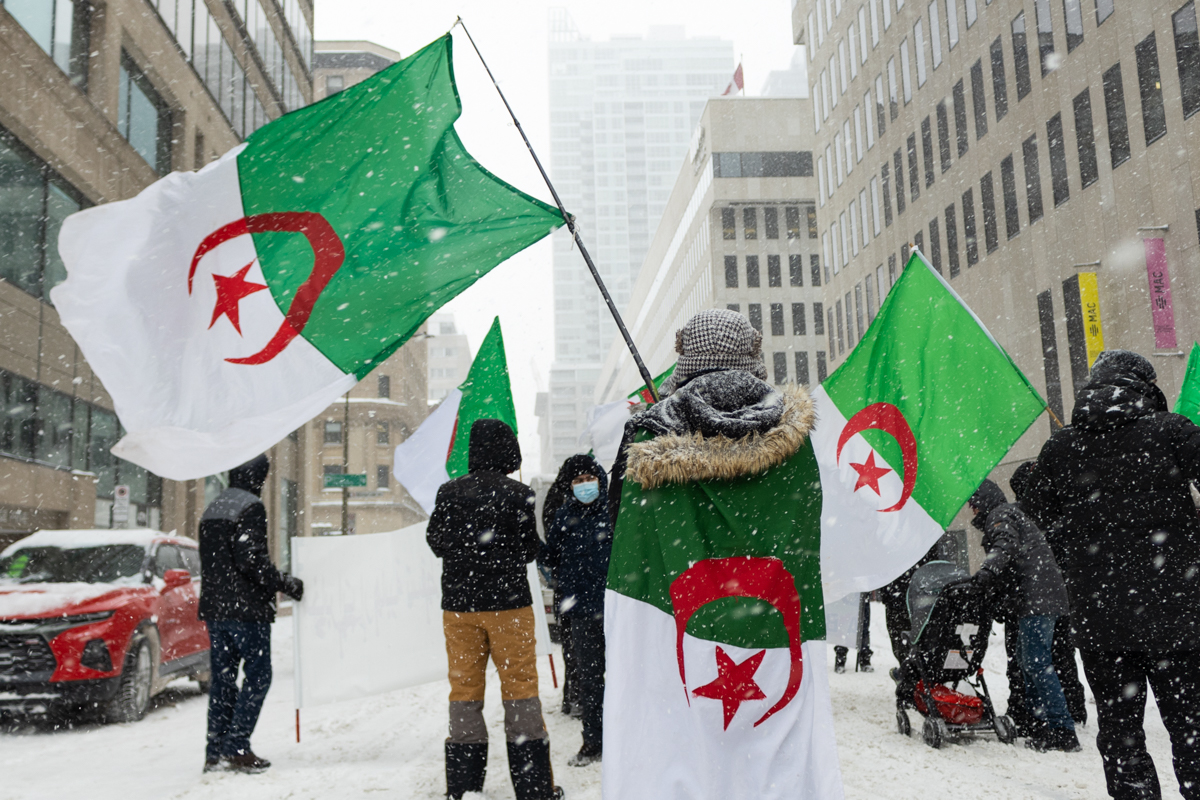The Hirak Movement is back to show solidarity to all the people in Algeria who are arbitrarily imprisoned.
On Feb. 19, a group of hundreds of protesters gathered around Place du Canada to commemorate the third anniversary of the Hirak Movement in Algeria.
The Hirak Movement started back in 2019, six days after long-ruling president Abdelaziz Bouteflika announced his fifth presidential term. The protest became a movement that denounced military dictatorship and its corrupted government. Around 250 protestors were sent to jail.
The leaders of Saturday’s protest were dressed in prison uniforms inside a rolling cage to symbolize the hundreds of Algerians serving prison sentences for expressing their political views during the Hirak protests.
A poster attached to the cage read, “Algeria, free the prisoners that are detained because of political opinions.”
One of the march’s main goals was to spread awareness of the injustices in Algeria. The Algerian government continues to censor journalists and anyone who opposes their ideas.
“We are here to support our friends, our brothers and our Harkis who are in Algeria and are suffering every day,” said Leila Cheurfli, a member of Hirak Canada.
To show solidarity, demonstrators held posters and flags proudly while filming live videos of the march with their cell phones.
“We want freedom of the press,” said Kouider Abbad, one of the organizers. “There are 450 Algerians in prison because of their opinions,” Abbad added.
Algerian censorship goes beyond journalists but also to anyone who is on social media.
“For a foreign video that was posted, somebody gave it a like. […] He was put in prison for a year.”
Marchers walked around downtown and stopped at the Consulate General of Spain in Montreal. The stop symbolized Spain’s complicity in deporting Brahim Laalami and Mohamed Abdellah, two activists who previously expressed their opinions on Algeria’s corruption and dictatorship.
They chanted, “Spain, Spain, shame on you!”
“Algeria paid [Spain] to have the two young people back, and right now, they are being tortured. These people have kids who were born in Spain, who have families and who work. Despite this, they returned them to Algeria,” explained Cheurfli.
Protestors sang various traditional songs about the Algerian Revolution in remembrance of the war from 1954 to 1962 that marked Algeria’s independence from France. This symbolic act of honour demonstrated the group’s opposition to oppression, tying this protest back to one of the country’s victories towards freedom.
“We don’t want countries like Spain [and] France to hand in Algerians in exchange for money,” said Cheurfli.
Bouteflika is no longer in power since 2019; however, the Hirak Movement will continue to march until there is justice for the imprisoned and radical change in the government.
Photos by Catherine Reynolds
